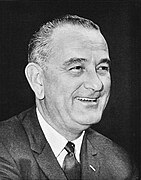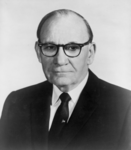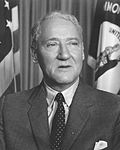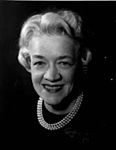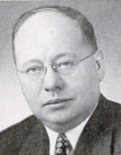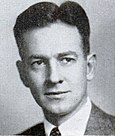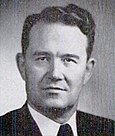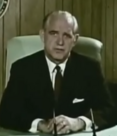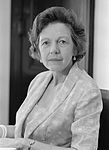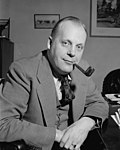For related races, see 1960 United States elections.
| ||||||||||||||||||||||||||||||||||||||||
| ← 1959 (HI)1961 (TX) → | ||||||||||||||||||||||||||||||||||||||||
34 of the 100 seats in the United States Senate 51 seats needed for a majority | ||||||||||||||||||||||||||||||||||||||||
|---|---|---|---|---|---|---|---|---|---|---|---|---|---|---|---|---|---|---|---|---|---|---|---|---|---|---|---|---|---|---|---|---|---|---|---|---|---|---|---|---|
| ||||||||||||||||||||||||||||||||||||||||
 Republican gain Democratic hold Republican hold No election | ||||||||||||||||||||||||||||||||||||||||
| ||||||||||||||||||||||||||||||||||||||||
The 1960 United States Senate elections coincided with the election of John F. Kennedy as president on November 8, 1960. The 33 seats of Class 2 were contested in regular elections. A special election was also held on June 28, 1960, for a mid-term vacancy in North Dakota where Democrats flipped a seat to expand their majority to 66–34. As Majority Leader Lyndon Johnson was elected Vice President, Mike Mansfield became the new majority leader.
The Republicans gained two seats at the expense of the Democrats. However, Republican Senator-elect Edwin Keith Thomson of Wyoming died December 9, 1960, and was replaced by appointee Democratic John J. Hickey at the beginning of the Congress, reducing Republican gains to one seat. However, this was canceled out by a 1961 special election where Republican John Tower flipped Johnson's Senate seat. The Democrats nonetheless retained a commanding lead in the Senate with 64 seats to 36.
Results summary
| 64 | 36 |
| Democratic | Republican |
| Parties | Total | ||||||||||||||||||||||||||||||||||||||||||||||||||||||||||||||||||||||||||||||||||||||||||||||||||
|---|---|---|---|---|---|---|---|---|---|---|---|---|---|---|---|---|---|---|---|---|---|---|---|---|---|---|---|---|---|---|---|---|---|---|---|---|---|---|---|---|---|---|---|---|---|---|---|---|---|---|---|---|---|---|---|---|---|---|---|---|---|---|---|---|---|---|---|---|---|---|---|---|---|---|---|---|---|---|---|---|---|---|---|---|---|---|---|---|---|---|---|---|---|---|---|---|---|---|---|
| Democratic | Republican | Other | |||||||||||||||||||||||||||||||||||||||||||||||||||||||||||||||||||||||||||||||||||||||||||||||||
| Last elections (1958) | 64 | 34 | 0 | 98 | |||||||||||||||||||||||||||||||||||||||||||||||||||||||||||||||||||||||||||||||||||||||||||||||
| Before these elections | 66 | 34 | 0 | 100 | |||||||||||||||||||||||||||||||||||||||||||||||||||||||||||||||||||||||||||||||||||||||||||||||
| Not up | 43 | 23 | 0 | 66 | |||||||||||||||||||||||||||||||||||||||||||||||||||||||||||||||||||||||||||||||||||||||||||||||
| Up | 23 | 11 | — | 34 | |||||||||||||||||||||||||||||||||||||||||||||||||||||||||||||||||||||||||||||||||||||||||||||||
| Class 2 (1954→1960) | 22 | 11 | — | 33 | |||||||||||||||||||||||||||||||||||||||||||||||||||||||||||||||||||||||||||||||||||||||||||||||
| Special: Class 3 | 1 | 0 | — | 1 | |||||||||||||||||||||||||||||||||||||||||||||||||||||||||||||||||||||||||||||||||||||||||||||||
| Incumbent retired | 4 | 1 | — | 5 | |||||||||||||||||||||||||||||||||||||||||||||||||||||||||||||||||||||||||||||||||||||||||||||||
| Held by same party | 3 | 1 | — | 4 | |||||||||||||||||||||||||||||||||||||||||||||||||||||||||||||||||||||||||||||||||||||||||||||||
| Replaced by other party | — | 1 | |||||||||||||||||||||||||||||||||||||||||||||||||||||||||||||||||||||||||||||||||||||||||||||||||
| Result | 3 | 2 | 0 | 5 | |||||||||||||||||||||||||||||||||||||||||||||||||||||||||||||||||||||||||||||||||||||||||||||||
| Incumbent ran | 19 | 10 | — | 29 | |||||||||||||||||||||||||||||||||||||||||||||||||||||||||||||||||||||||||||||||||||||||||||||||
| Won re-election | 18 | 10 | — | 28 | |||||||||||||||||||||||||||||||||||||||||||||||||||||||||||||||||||||||||||||||||||||||||||||||
| Lost re-election | — | 1 | |||||||||||||||||||||||||||||||||||||||||||||||||||||||||||||||||||||||||||||||||||||||||||||||||
| Lost renomination, but held by same party |
0 | 0 | — | 0 | |||||||||||||||||||||||||||||||||||||||||||||||||||||||||||||||||||||||||||||||||||||||||||||||
| Result | 18 | 11 | 0 | 29 | |||||||||||||||||||||||||||||||||||||||||||||||||||||||||||||||||||||||||||||||||||||||||||||||
| Total elected | 21 | 13 | 0 | 34 | |||||||||||||||||||||||||||||||||||||||||||||||||||||||||||||||||||||||||||||||||||||||||||||||
| Net gain/loss | 2 | ||||||||||||||||||||||||||||||||||||||||||||||||||||||||||||||||||||||||||||||||||||||||||||||||||
| Nationwide vote | 18,547,250 | 14,894,867 | 218,893 | 33,661,010 | |||||||||||||||||||||||||||||||||||||||||||||||||||||||||||||||||||||||||||||||||||||||||||||||
| Share | 55.10% | 44.25% | 0.65% | 100% | |||||||||||||||||||||||||||||||||||||||||||||||||||||||||||||||||||||||||||||||||||||||||||||||
| Result | 64 | 36 | 0 | 100 | |||||||||||||||||||||||||||||||||||||||||||||||||||||||||||||||||||||||||||||||||||||||||||||||
Source: Clerk of the U.S. House of Representatives (1961). "Statistics of the Presidential and Congressional Election of November 8, 1960" (PDF). U.S. Government Printing Office. p. 52.
Gains, losses, and holds
Retirements
Two Republicans and four Democrats retired instead of seeking re-election.
Defeats
One Democrat sought re-election but lost in the general election.
| State | Senator | Replaced by |
|---|---|---|
| Delaware | J. Allen Frear Jr. | J. Caleb Boggs |
Post-election changes
Four Republicans died and two Democrats resigned, and were all replaced by appointees. One Republican senator-elect died December 9, 1960 before the next Congress began, and was replaced by a Democratic appointee. In Texas, a 1961 special election was held prior to the 1962 United States Senate elections, where John Tower won the special election to succeed Democratic appointee William A. Blakley, who lost election to finish the term.
Change in composition
After the June special election
| D1 | D2 | D3 | D4 | D5 | D6 | D7 | D8 | D9 | D10 |
| D20 | D19 | D18 | D17 | D16 | D15 | D14 | D13 | D12 | D11 |
| D21 | D22 | D23 | D24 | D25 | D26 | D27 | D28 | D29 | D30 |
| D40 | D39 | D38 | D37 | D36 | D35 | D34 | D33 | D32 | D31 |
| D41 | D42 | D43 | D44 | D45 | D46 | D47 | D48 | D49 | D50 |
| Majority → | D51 | ||||||||
| D60 | D59 | D58 | D57 | D56 | D55 | D54 | D53 | D52 | |
| D61 | D62 | D63 | D64 | D65 | D66 N.D. (sp) Gain |
R34 | R33 | R32 | R31 |
| R21 | R22 | R23 | R24 | R25 | R26 | R27 | R28 | R29 | R30 |
| R20 | R19 | R18 | R17 | R16 | R15 | R14 | R13 | R12 | R11 |
| R1 | R2 | R3 | R4 | R5 | R6 | R7 | R8 | R9 | R10 |
Before the November elections
| D1 | D2 | D3 | D4 | D5 | D6 | D7 | D8 | D9 | D10 |
| D20 | D19 | D18 | D17 | D16 | D15 | D14 | D13 | D12 | D11 |
| D21 | D22 | D23 | D24 | D25 | D26 | D27 | D28 | D29 | D30 |
| D40 | D39 | D38 | D37 | D36 | D35 | D34 | D33 | D32 | D31 |
| D41 | D42 | D43 | D44 Ala. Ran |
D45 Alaska Ran |
D46 Ark. Ran |
D47 Del. Ran |
D48 Ga. Ran |
D49 Ill. Ran |
D50 La. Ran |
| Majority → | D51 Mich. Ran | ||||||||
| D60 R.I. Retired |
D59 Ore. (reg) Ore. (sp) Retired |
D58 Okla. Ran |
D57 N.C. Ran |
D56 N.M. Ran |
D55 Mont. Retired |
D54 Mo. (sp) Ran |
D53 Miss. Ran |
D52 Minn. Ran | |
| D61 S.C. Ran |
D62 Tenn. Ran |
D63 Texas Ran |
D64 Va. Ran |
D65 W.Va. Ran |
D66 Wyo. Retired |
R34 S.D. Ran |
R33 N.J. Ran |
R32 N.H. Ran |
R31 Neb. Ran |
| R21 | R22 | R23 | R24 Colo. Ran |
R25 Idaho Ran |
R26 Iowa Retired |
R27 Kan. Ran |
R28 Ky. Ran |
R29 Maine Ran |
R30 Mass. Ran |
| R20 | R19 | R18 | R17 | R16 | R15 | R14 | R13 | R12 | R11 |
| R1 | R2 | R3 | R4 | R5 | R6 | R7 | R8 | R9 | R10 |
Result of the November elections
| D1 | D2 | D3 | D4 | D5 | D6 | D7 | D8 | D9 | D10 |
| D20 | D19 | D18 | D17 | D16 | D15 | D14 | D13 | D12 | D11 |
| D21 | D22 | D23 | D24 | D25 | D26 | D27 | D28 | D29 | D30 |
| D40 | D39 | D38 | D37 | D36 | D35 | D34 | D33 | D32 | D31 |
| D41 | D42 | D43 | D44 Ala. Re-elected |
D45 Alaska Re-elected |
D46 Ark. Re-elected |
D47 Ga. Re-elected |
D48 Ill. Re-elected |
D49 La. Re-elected |
D50 Mich. Re-elected |
| Majority → | D51 Minn. Re-elected | ||||||||
| D60 S.C. Re-elected |
D59 R.I. Hold |
D58 Ore. (reg) Ore. (sp) Hold |
D57 Okla. Re-elected |
D56 N.C. Re-elected |
D55 N.M. Re-elected |
D54 Mont. Hold |
D53 Mo. (sp) Elected |
D52 Miss. Re-elected | |
| D61 Tenn. Re-elected |
D62 Texas Re-elected |
D63 Va. Re-elected |
D64 W.Va. Re-elected |
R36 Wyo. Gain |
R35 Del. Gain |
R34 S.D. Re-elected |
R33 N.J. Re-elected |
R32 N.H. Re-elected |
R31 Neb. Re-elected |
| R21 | R22 | R23 | R24 Colo. Re-elected |
R25 Idaho Re-elected |
R26 Iowa Hold |
R27 Kan. Re-elected |
R28 Ky. Re-elected |
R29 Maine Re-elected |
R30 Mass. Re-elected |
| R20 | R19 | R18 | R17 | R16 | R15 | R14 | R13 | R12 | R11 |
| R1 | R2 | R3 | R4 | R5 | R6 | R7 | R8 | R9 | R10 |
Beginning of the next Congress
| D1 | D2 | D3 | D4 | D5 | D6 | D7 | D8 | D9 | D10 |
| D20 | D19 | D18 | D17 | D16 | D15 | D14 | D13 | D12 | D11 |
| D21 | D22 | D23 | D24 | D25 | D26 | D27 | D28 | D29 | D30 |
| D40 | D39 | D38 | D37 | D36 | D35 | D34 | D33 | D32 | D31 |
| D41 | D42 | D43 | D44 | D45 | D46 | D47 | D48 | D49 | D50 |
| Majority → | D51 | ||||||||
| D60 | D59 | D58 | D57 | D56 | D55 | D54 | D53 | D52 | |
| D61 | D62 | D63 | D64 Wyo. Gain |
R36 Texas Gain |
R35 | R34 | R33 | R32 | R31 |
| R21 | R22 | R23 | R24 | R25 | R26 | R27 | R28 | R29 | R30 |
| R20 | R19 | R18 | R17 | R16 | R15 | R14 | R13 | R12 | R11 |
| R1 | R2 | R3 | R4 | R5 | R6 | R7 | R8 | R9 | R10 |
| Key: |
|
|---|
Race summaries
Special elections during the 86th Congress
In these special elections, the winner was seated during 1960 or before January 3, 1961; ordered by election date.
| State | Incumbent | Results | Candidates | ||
|---|---|---|---|---|---|
| Senator | Party | Electoral history | |||
| North Dakota (Class 1) |
Norman Brunsdale | Republican | 1959 (Appointed) | Interim appointee retired. New senator elected June 28, 1960 and seated August 8, 1960. Democratic-NPL gain. |
|
| Missouri (Class 3) |
Edward V. Long | Democratic | 1960 (Appointed) | Interim appointee elected November 8, 1960. |
|
| Oregon (Class 2) |
Hall S. Lusk | Democratic | 1960 (Appointed) | Interim appointee retired. New senator elected November 8, 1960 and seated the following day. Winner was also elected to the next term, see below. Democratic hold. |
|
Elections leading to the next Congress
In these general elections, the winners were elected for the term beginning January 3, 1961; ordered by state.
All of the elections involved the Class 2 seats.
| State | Incumbent | Results | Candidates | ||
|---|---|---|---|---|---|
| Senator | Party | Electoral history | |||
| Alabama | John Sparkman | Democratic | 1946 (special) 1948 1954 |
Incumbent re-elected. |
|
| Alaska | Bob Bartlett | Democratic | 1958 (New seat) | Incumbent re-elected. |
|
| Arkansas | John L. McClellan | Democratic | 1942 1948 1954 |
Incumbent re-elected. |
|
| Colorado | Gordon Allott | Republican | 1954 | Incumbent re-elected. |
|
| Delaware | J. Allen Frear Jr. | Democratic | 1948 1954 |
Incumbent lost re-election. Republican gain. |
|
| Georgia | Richard Russell Jr. | Democratic | 1932 (special) 1936 1942 1948 1954 |
Incumbent re-elected. |
|
| Idaho | Henry Dworshak | Republican | 1946 (special) 1948 (Lost) 1949 (Appointed) 1950 (special) 1954 |
Incumbent re-elected. |
|
| Illinois | Paul Douglas | Democratic | 1948 1954 |
Incumbent re-elected. |
|
| Iowa | Thomas E. Martin | Republican | 1954 | Incumbent retired. Republican hold. |
|
| Kansas | Andrew Frank Schoeppel | Republican | 1948 1954 |
Incumbent re-elected. |
|
| Kentucky | John Sherman Cooper | Republican | 1946 (special) 1948 (Lost) 1952 (special) 1954 (Lost) 1956 (special) |
Incumbent re-elected. |
|
| Louisiana | Allen J. Ellender | Democratic | 1936 1942 1948 1954 |
Incumbent re-elected. |
|
| Maine | Margaret Chase Smith | Republican | 1948 1954 |
Incumbent re-elected. |
|
| Massachusetts | Leverett Saltonstall | Republican | 1944 (special) 1948 1954 |
Incumbent re-elected. |
|
| Michigan | Patrick V. McNamara | Democratic | 1954 | Incumbent re-elected. |
|
| Minnesota | Hubert Humphrey | DFL | 1948 1954 |
Incumbent re-elected. |
|
| Mississippi | James Eastland | Democratic | 1942 1948 1954 |
Incumbent re-elected. |
|
| Montana | James E. Murray | Democratic | 1934 (special) 1936 1942 1948 1954 |
Incumbent retired. Democratic hold. |
|
| Nebraska | Carl Curtis | Republican | 1954 | Incumbent re-elected. |
|
| New Hampshire | Styles Bridges | Republican | 1936 1942 1948 1954 |
Incumbent re-elected. |
|
| New Jersey | Clifford P. Case | Republican | 1954 | Incumbent re-elected. |
|
| New Mexico | Clinton Anderson | Democratic | 1948 1954 |
Incumbent re-elected. |
|
| North Carolina | B. Everett Jordan | Democratic | 1958 (Appointed) 1958 (special) |
Incumbent re-elected. |
|
| Oklahoma | Robert S. Kerr | Democratic | 1948 1954 |
Incumbent re-elected. |
|
| Oregon | Hall S. Lusk | Democratic | 1960 (Appointed) | Interim appointee retired. Winner also elected to finish the term; see above. Democratic hold. |
|
| Rhode Island | Theodore F. Green | Democratic | 1936 1942 1948 1954 |
Incumbent retired. Democratic hold. |
|
| South Carolina | Strom Thurmond | Democratic | 1954 (write-in) 1954 (Appointed) 1956 (Resigned) 1956 (special) |
Incumbent re-elected. |
|
| South Dakota | Karl Mundt | Republican | 1948 1948 (Appointed) 1954 |
Incumbent re-elected. |
|
| Tennessee | Estes Kefauver | Democratic | 1948 1954 |
Incumbent re-elected. |
|
| Texas | Lyndon B. Johnson | Democratic | 1948 1954 |
Incumbent re-elected, but resigned at the end of the term to become U.S. Vice President. William A. Blakley was appointed to begin the next term. |
|
| Virginia | A. Willis Robertson | Democratic | 1946 (special) 1948 1954 |
Incumbent re-elected. |
|
| West Virginia | Jennings Randolph | Democratic | 1958 (special) | Incumbent re-elected. |
|
| Wyoming | Joseph C. O'Mahoney | Democratic | 1954 | Incumbent retired. New senator elected, but died before Congress began. Republican gain. Joe Hickey (D) was appointed to begin the next term. |
|
Closest races
Eleven races had a margin of victory under 10%:
| State | Party of winner | Margin |
|---|---|---|
| North Dakota (special) | Democratic (flip) | 0.5% |
| Montana | Democratic | 1.4% |
| Delaware | Republican (flip) | 1.4% |
| Michigan | Democratic | 3.7% |
| Iowa | Republican | 3.8% |
| Idaho | Republican | 4.6% |
| South Dakota | Republican | 4.8% |
| Missouri (special) | Democratic | 6.4% |
| Colorado | Republican | 7.5% |
| Oregon | Democratic | 9.2% |
| Illinois | Democratic | 9.4% |
Rhode Island was the tipping point state with a margin of 37.8%.
Alabama
Main article: 1960 United States Senate election in Alabama See also: List of United States senators from Alabama and 1960 United States House of Representatives elections in Alabama
| |||||||||||||||||
| |||||||||||||||||
 County results County resultsSparkman: 50–60% 60–70% 70–80% 80–90% Elgin: 50-60% 60-70% | |||||||||||||||||
| |||||||||||||||||
Incumbent John J. Sparkman won re-election, having served since 1946. He faced nominal opposition from Republican Julian E. Elgin in the then-deeply Democratic state of Alabama. Sparkman served from 1946 to 1979 in the Senate before retiring and being succeeded by Howell Heflin.
| Party | Candidate | Votes | % | |
|---|---|---|---|---|
| Democratic | John J. Sparkman (Incumbent) | 389,196 | 70.24 | |
| Republican | Julian E. Elgin | 164,868 | 29.76 | |
| Majority | 224,328 | 40.48 | ||
| Turnout | 554,064 | |||
| Democratic hold | ||||
Alaska
| |||||||||||||||||
| |||||||||||||||||
 Results by election district Results by election districtBartlett: 50–60% 60–70% 70–80% 80–90% McKinley: 50–60% | |||||||||||||||||
| |||||||||||||||||
Incumbent Democrat Bob Bartlett was easily re-elected to his second (his first full) term in the U.S. Senate over Republican dentist Lee McKinley after originally being elected in 1958 upon Alaska's anticipated admission as a state into the United States. Bartlett had previously served as the last delegate from Alaska to Congress.
| Party | Candidate | Votes | % | |
|---|---|---|---|---|
| Democratic | Bob Bartlett (Incumbent) | 38,041 | 63.42 | |
| Republican | Lee L. McKinley | 21,937 | 36.58 | |
| Majority | 16,104 | 26.84 | ||
| Turnout | 59,978 | |||
| Democratic hold | ||||
Arkansas
| |||||||||||||||||
| |||||||||||||||||
 County results County resultsMcClellan: 90–100% | |||||||||||||||||
| |||||||||||||||||
Incumbent senator John L. McClellan was re-elected to a fourth term with nominal opposition from write-in independent candidate Marvin Fuchs, who received just 449 of 377,485 votes.
| Party | Candidate | Votes | % | |
|---|---|---|---|---|
| Democratic | John L. McClellan (incumbent) | unopposed | ||
| Party | Candidate | Votes | % | |
|---|---|---|---|---|
| Democratic | John Little McClellan (Incumbent) | 377,036 | 99.88 | |
| None | Marvin Fuchs (write-in) | 449 | 0.12 | |
| Majority | 376,587 | 99.76 | ||
| Turnout | 377,485 | |||
| Democratic hold | ||||
Colorado
| |||||||||||||||||
| |||||||||||||||||
 County results County resultsAllott: 40-50% 50–60% 60–70% Knous: 50–60% 60–70% | |||||||||||||||||
| |||||||||||||||||
Incumbent Gordon Allott was re-elected to a second term in office, defeating lieutenant governor Robert Knous by just under eight percentage points. He would wind up winning re-election in 1966 before retiring in 1973, replaced by Democrat Floyd Haskell.
| Party | Candidate | Votes | % | |
|---|---|---|---|---|
| Republican | Gordon L. Allott (Incumbent) | 389,428 | 53.75 | |
| Democratic | Robert L. Knous | 331,752 | 45.79 | |
| Independent | William R. Casey | 3,351 | 0.46 | |
| Majority | 57,676 | 7.96 | ||
| Turnout | 724,531 | |||
| Republican hold | ||||
Delaware
| |||||||||||||||||
| |||||||||||||||||
 County Results County Results Boggs: 50-60% Frear: 50–60% | |||||||||||||||||
| |||||||||||||||||
J. Allen Frear ran for re-election to a third term, but he was defeated by Republican governor J. Caleb Boggs by a narrow 1% margin. Boggs would be re-elected in 1966, but he would lose re-election to a third term in 1972 to future U.S. President Joe Biden.
| Party | Candidate | Votes | % | |
|---|---|---|---|---|
| Republican | J. Caleb Boggs | 98,874 | 50.71 | |
| Democratic | J. Allen Frear (Incumbent) | 96,090 | 49.29 | |
| Majority | 2,784 | 1.42 | ||
| Turnout | 194,964 | |||
| Republican gain from Democratic | ||||
Georgia
| ||||||||||||||||||||
| ||||||||||||||||||||
 County results County resultsRussell: >90% | ||||||||||||||||||||
| ||||||||||||||||||||
Incumbent Richard B. Russell Jr. was re-elected to a sixth term in office, running unopposed in the tantamount Democratic primary and facing nominal opposition in the deeply-Democratic Georgia.
| Party | Candidate | Votes | % | |
|---|---|---|---|---|
| Democratic | Richard B. Russell Jr. (Incumbent) | 576,140 | 99.94 | |
| None | Scattering | 355 | 0.06 | |
| Majority | 575,785 | 98.98 | ||
| Turnout | 576,495 | |||
| Democratic hold | ||||
Idaho
Main article: 1960 United States Senate election in Idaho See also: List of United States senators from Idaho and 1960 United States House of Representatives elections in IdahoHenry Dworshak ran for re-election to a third term, defeating R.F. McLaughlin by just under five percentage points.
| ← 19541962 (special) → | |||||||||||||||||
| |||||||||||||||||
 County results County resultsDworshak: 50-60% 60-70% McLaughlin: 50–60% 60–70% | |||||||||||||||||
| |||||||||||||||||
| Party | Candidate | Votes | % | |
|---|---|---|---|---|
| Republican | Henry Dworshak (Incumbent) | 152,648 | 52.26 | |
| Democratic | R. F. ‘Bob’ McLaughlin | 139,448 | 47.74 | |
| Majority | 13,200 | 4.52 | ||
| Turnout | 292,096 | |||
| Republican hold | ||||
Illinois
| |||||||||||||||||
| Turnout | 84.24% | ||||||||||||||||
|---|---|---|---|---|---|---|---|---|---|---|---|---|---|---|---|---|---|
| |||||||||||||||||
 County results County resultsDouglas: 50–60% 60–70% Witwer: 50–60% 60–70% | |||||||||||||||||
| |||||||||||||||||
Incumbent Paul H. Douglas successfully ran for re-election to a third term, defeating Republican Samuel Witwer.
| Party | Candidate | Votes | % | |
|---|---|---|---|---|
| Democratic | Paul H. Douglas (Incumbent) | 2,530,943 | 54.63 | |
| Republican | Samuel W. Witwer | 2,093,846 | 45.20 | |
| Socialist Labor | Louis Fisher | 8,007 | 0.17 | |
| Majority | 437,097 | 9.43 | ||
| Turnout | 4,632,796 | 84.24 | ||
| Democratic hold | ||||
Iowa
| |||||||||||||||||
| |||||||||||||||||
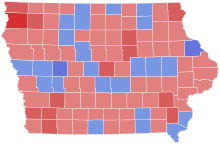 County results County results Miller: 50-60% 60-70% 70-80% Loveless: 50-60% 60-70% | |||||||||||||||||
| |||||||||||||||||
Incumbent Republican Thomas Martin decided to retire, leaving this seat open. Republican Jack Miller won the open seat, defeating Democrat Herschel C. Loveless and riding the coattails of Richard Nixon's victory in the state.
| Party | Candidate | Votes | % | |
|---|---|---|---|---|
| Republican | Jack Miller | 642,463 | 51.91 | |
| Democratic | Herschel C. Loveless | 595,119 | 48.09 | |
| Majority | 47,344 | 23.11 | ||
| Turnout | 1,237,582 | |||
| Republican hold | ||||
Kansas
| |||||||||||||||||
| |||||||||||||||||
 County results County resultsSchoeppel: 40–50% 50–60% 60–70% 70–80% Theis: 50–60% 60–70% | |||||||||||||||||
| |||||||||||||||||
| Party | Candidate | Votes | % | |
|---|---|---|---|---|
| Republican | Andrew F. Schoeppel (Incumbent) | 485,499 | 54.64 | |
| Democratic | Frank Theis | 388,895 | 43.77 | |
| Prohibition | C. E. Cowen | 14,198 | 1.60 | |
| Majority | 96,604 | 10.87 | ||
| Turnout | 888,592 | |||
| Republican hold | ||||
Kentucky
Main article: 1960 United States Senate election in Kentucky
| |||||||||||||||||
| |||||||||||||||||
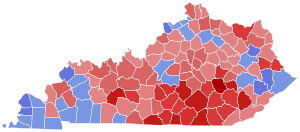 County results County resultsCooper: 50-60% 60-70% 70-80% 80–90% >90% Johnson: 50–60% 60–70% | |||||||||||||||||
| |||||||||||||||||
Incumbent John Sherman Cooper ran for re-election, defeating Keen Johnson by nearly 20%. This was the first time Cooper had won an election to a full Senate term, though he had previously served two partial terms.
| Party | Candidate | Votes | % | |
|---|---|---|---|---|
| Republican | John Sherman Cooper (Incumbent) | 644,087 | 59.15 | |
| Democratic | Keen Johnson | 444,830 | 40.85 | |
| Majority | 199,257 | 18.30 | ||
| Turnout | 1,088,917 | |||
| Republican hold | ||||
Louisiana
| |||||||||||||||||
| |||||||||||||||||
 Parish results Parish resultsEllender: 60–70% 70–80% 80–90% >90% | |||||||||||||||||
| |||||||||||||||||
| Party | Candidate | Votes | % | |
|---|---|---|---|---|
| Democratic | Allen J. Ellender (Incumbent) | 432,228 | 79.76 | |
| Republican | George W. Reese Jr. | 109,698 | 20.24 | |
| None | Write-Ins | 2 | 0.00 | |
| Majority | 322,530 | 59.52 | ||
| Turnout | 541,928 | |||
| Democratic hold | ||||
Maine
| |||||||||||||||||
| |||||||||||||||||
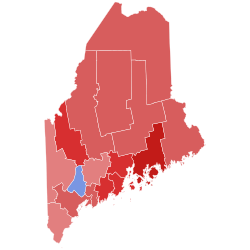 County results County results Smith: 50–60% 60–70% 70–80% 80–90% Cormier: 50–60% | |||||||||||||||||
| |||||||||||||||||
Incumbent Republican Margaret Chase Smith, the first woman to serve in both houses of Congress, was overwhelmingly re-elected to a third term, defeating Lucia Cormier. This was the first election in which a woman was nominated by both major parties for the office of U.S. Senate, meaning a woman was going to be elected regardless of who won.
| Party | Candidate | Votes | % | |
|---|---|---|---|---|
| Republican | Margaret Chase Smith (Incumbent) | 256,890 | 61.65 | |
| Democratic | Lucia M. Cormier | 159,809 | 38.35 | |
| Majority | 97,081 | 23.30 | ||
| Turnout | 416,699 | |||
| Republican hold | ||||
Massachusetts
| |||||||||||||||||
| |||||||||||||||||
 County results
County results Municipality results
Municipality results
| |||||||||||||||||
| |||||||||||||||||
Republican incumbent Leverett Saltonstall was re-elected to another term after being elected in 1944 in a special election. He defeated Democrat Thomas O'Connor Jr.
| Party | Candidate | Votes | % | |
|---|---|---|---|---|
| Republican | Leverett Saltonstall (Incumbent) | 1,358,556 | 56.19 | |
| Democratic | Thomas J. O'Connor, Jr. | 1,050,725 | 43.46 | |
| Socialist Labor | Lawrence Gilfedder | 5,735 | 0.24 | |
| Prohibition | Mark R. Shaw | 2,794 | 0.12 | |
| None | Others | 3 | 0.00 | |
| Majority | 307,831 | 12.73 | ||
| Turnout | 2,417,813 | |||
| Republican hold | ||||
Michigan
Main article: 1960 United States Senate election in Michigan
| |||||||||||||||||
| |||||||||||||||||
 County results County resultsMcNamara: 50–60% 60–70% Bentley: 50–60% 60–70% 70–80% | |||||||||||||||||
| |||||||||||||||||
Democrat Patrick V. McNamara was narrowly re-elected against Republican Alvin Bentley, having served one full term prior.
| Party | Candidate | Votes | % | |
|---|---|---|---|---|
| Democratic | Patrick V. McNamara (Incumbent) | 1,669,179 | 51.73 | |
| Republican | Alvin Bentley | 1,548,873 | 48.00 | |
| Socialist Workers | Frank Lovell | 3,282 | 0.10 | |
| Prohibition | Rollin M. Severance | 2,273 | 0.07 | |
| Socialist Labor | James Sim | 1,565 | 0.05 | |
| Independent American | Alvin L. Reynolds | 1,465 | 0.05 | |
| None | Scattering | 10 | 0.00 | |
| Majority | 120,306 | 3.73 | ||
| Turnout | 3,226,647 | |||
| Democratic hold | ||||
Minnesota
| ← 19541966 → | |||||||||||||||||
| |||||||||||||||||
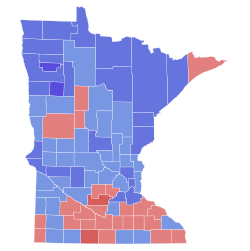 County results County resultsHumphrey: 50–60% 60–70% 70–80% Peterson: 50-60% 60-70% | |||||||||||||||||
| |||||||||||||||||
Democrat Hubert Humphrey, who would later become vice president, was re-elected over Republican challenger P. Kenneth Peterson. He had served since 1949.
| Party | Candidate | Votes | % | |
|---|---|---|---|---|
| Democratic (DFL) | Hubert Humphrey (Incumbent) | 884,168 | 57.53 | |
| Republican | P. Kenneth Peterson | 648,586 | 42.20 | |
| Write-in | Write-Ins | 4,085 | 0.27 | |
| Majority | 117,791 | 15.33 | ||
| Turnout | 1,532,754 | |||
| Democratic (DFL) hold | ||||
Mississippi
| ← 19541966 → | |||||||||||||||||
| |||||||||||||||||
 County results County resultsEastland: 80-90% 90-100% | |||||||||||||||||
| |||||||||||||||||
Incumbent James Eastland, who had represented Mississippi in the Senate since 1943, was elected to another term in a landslide with 92% of the vote.
| Party | Candidate | Votes | % | |
|---|---|---|---|---|
| Democratic | James Eastland (Incumbent) | 244,341 | 91.81 | |
| Republican | Joe A. Moore | 21,807 | 8.19 | |
| Majority | 222,534 | 83.62 | ||
| Turnout | 266,148 | |||
| Democratic hold | ||||
Missouri (special)
Main article: 1960 United States Senate special election in Missouri See also: List of United States senators from Missouri and 1960 United States House of Representatives elections in MissouriFollowing the death of incumbent Thomas C. Hennings, Democrat Edward V. Long, incumbent Lieutenant Governor of Missouri, ran against Republican Lon Hocker for the open seat. Long defeated Hocker by just under seven percentage points.
| ← 19561962 → | |||||||||||||||||
| |||||||||||||||||
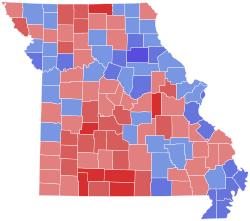 County results County resultsLong: 50–60% 60–70% 70–80% 80–90% Hocker: 50–60% 60–70% 70–80% | |||||||||||||||||
| |||||||||||||||||
| Party | Candidate | Votes | % | |
|---|---|---|---|---|
| Democratic | Edward V. Long | 999,656 | 53.17 | |
| Republican | Lon Hocker | 880,576 | 46.83 | |
| Majority | 119,080 | 6.34 | ||
| Turnout | 1,880,232 | |||
| Democratic hold | ||||
Montana
| |||||||||||||||||
| |||||||||||||||||
 County results County resultsMetcalf: 50–60% 60–70% Fjare: 50–60% 60–70% 70–80% | |||||||||||||||||
| |||||||||||||||||
After the retirement of incumbent Democrat James E. Murray, Democrat and representative Lee Metcalf and Republican Orvin Fjare ran for the open seat. Metcalf kept the seat Democratic, winning by just over 1%. This was despite Richard Nixon winning Montana in the concurrent presidential election.
| Party | Candidate | Votes | % | |
|---|---|---|---|---|
| Democratic | Lee Metcalf | 140,331 | 50.73 | |
| Republican | Orvin B. Fjare | 136,281 | 49.27 | |
| Majority | 4,050 | 1.46 | ||
| Turnout | 276,612 | |||
| Democratic hold | ||||
Nebraska
| |||||||||||||||||
| |||||||||||||||||
 County results County resultsCurtis: 50–60% 60–70% 70–80% Conrad: 50–60% | |||||||||||||||||
| |||||||||||||||||
Republican Carl Curtis, who had served since 1955, was re-elected to a second term over Democrat Robert Conrad by nearly 17 percentage points. Curtis won all but four counties in the state.
| Party | Candidate | Votes | % | |
|---|---|---|---|---|
| Republican | Carl T. Curtis (Incumbent) | 352,748 | 58.91 | |
| Democratic | Robert B. Conrad | 245,837 | 41.06 | |
| N/A | Scattering | 158 | 0.03 | |
| Majority | 106,941 | 17.86 | ||
| Turnout | 598,743 | |||
| Republican hold | ||||
New Hampshire
| |||||||||||||||||
| |||||||||||||||||
 County results County results Bridges: 50–60% 60–70% 80–90% | |||||||||||||||||
| |||||||||||||||||
| Party | Candidate | Votes | % | |
|---|---|---|---|---|
| Republican | Styles Bridges (Incumbent) | 173,521 | 60.35 | |
| Democratic | Herbert W. Hill | 114,024 | 39.65 | |
| Majority | 59,497 | 20.70 | ||
| Turnout | 287,545 | |||
| Republican hold | ||||
Bridges died less than a year into his fifth term. With New Hampshire's other Senator Norris Cotton up for re-election in 1962 and following Bridges death. Both of New Hampshire's Senate seats would be up in the 1962 midterms.
New Jersey
| ← 19541966 → | |||||||||||||||||
| |||||||||||||||||
 County results County results Case: 50-60% 60-70% 70-80% Lord: 50–60% | |||||||||||||||||
| |||||||||||||||||
Incumbent Republican Clifford P. Case won re-election against Democrat Thorn Lord. Case would win re-election a few more times in 1966 and 1972, before losing in the 1978 Republican primary.
| Party | Candidate | Votes | % | |
|---|---|---|---|---|
| Republican | Clifford P. Case (Incumbent) | 1,483,832 | 55.69 | |
| Democratic | Thorn Lord | 1,151,385 | 43.21 | |
| Conservative | Winifred O. Perry | 13,756 | 0.52 | |
| Socialist Labor | Albert Ronis | 11,784 | 0.44 | |
| Socialist Workers | Gladys Grauer | 3,599 | 0.14 | |
| Majority | 332,447 | 12.48 | ||
| Turnout | 2,664,356 | |||
| Republican hold | ||||
New Mexico
| |||||||||||||||||
| |||||||||||||||||
 County results County resultsAnderson: 50–60% 60–70% 70–80% Colwes: 50–60% | |||||||||||||||||
| |||||||||||||||||
| Party | Candidate | Votes | % | |
|---|---|---|---|---|
| Democratic | Clinton Anderson (Incumbent) | 190,654 | 63.43 | |
| Republican | William Colwes | 109,897 | 36.57 | |
| Majority | 80,757 | 26.86 | ||
| Turnout | 300,551 | |||
| Democratic hold | ||||
North Carolina
| |||||||||||||||||
| |||||||||||||||||
 County results County resultsJordan: 50–60% 60–70% 70–80% 80–90% >90% Hayes: 50–60% 60–70% 70–80% | |||||||||||||||||
| |||||||||||||||||
Incumbent Democrat B. Everett Jordan was re-elected to his first full term after winning a special election in 1958. He defeated Republican Kyle Hayes by a slightly slimmer margin than he defeated his Republican challenger in 1958.
| Party | Candidate | Votes | % | |
|---|---|---|---|---|
| Democratic | B. Everett Jordan (Incumbent) | 793,521 | 61.44 | |
| Republican | Kyle Hayes | 497,964 | 38.56 | |
| Majority | 295,557 | 22.88 | ||
| Turnout | 1,291,485 | |||
| Democratic hold | ||||
North Dakota (special)
| |||||||||||||||||
| |||||||||||||||||
 County results County results
| |||||||||||||||||
| |||||||||||||||||
A special election was held June 28, 1960, to fill the seat vacated by William Langer, who died November 8, 1959. Clarence Norman Brunsdale, a former Governor of North Dakota, was temporarily appointed to the seat on November 19 of that year until the special election was held. North Dakota Democratic-NPL Party candidate Quentin N. Burdick faced Republican John E. Davis for election to the seat. Davis had been serving as Governor of the state since 1957.
| Party | Candidate | Votes | % | |
|---|---|---|---|---|
| Democratic–NPL | Quentin N. Burdick | 104,593 | 49.72 | |
| Republican | John E. Davis | 103,475 | 49.19 | |
| Independent | Eugene Van Der Hoeven | 1,337 | 0.64 | |
| Independent | Clarence Haggard | 934 | 0.45 | |
| Turnout | 163,311 | |||
Oklahoma
Main article: 1960 United States Senate election in Oklahoma
| |||||||||||||||||
| |||||||||||||||||
 County results County resultsKerr: 50–60% 60–70% 70–80% Crawford: 50–60% 60–70% | |||||||||||||||||
| |||||||||||||||||
Incumbent Democrat Robert Kerr won re-election to a third term, though he would die before the term was up and would be replaced by J. Democrat Howard Edmondson.
| Party | Candidate | Votes | % | |
|---|---|---|---|---|
| Democratic | Robert S. Kerr (Incumbent) | 474,116 | 54.84 | |
| Republican | B. Hayden Crawford | 385,646 | 44.61 | |
| Independent | Billy E. Brown | 4,713 | 0.55 | |
| Majority | 88,470 | 10.23 | ||
| Turnout | 864,475 | |||
| Democratic hold | ||||
Oregon
Main article: 1960 United States Senate elections in OregonSee also: List of United States senators from Oregon and 1960 United States House of Representatives elections in Oregon
| |||||||||||||||||
| |||||||||||||||||
 Regular/special election county results Regular/special election county resultsNeuberger: 50–60% 60–70% Smith: 50-60% | |||||||||||||||||
| |||||||||||||||||
First-term Democrat Richard L. Neuberger had been diagnosed with testicular cancer in 1958 that became terminal by 1960 — but was kept from the public. Neuberger remained at home in early 1960, reportedly battling the flu. Though still publicly seeking re-election, he told his campaign chair, attorney Jack Beatty, "Remember, there's always another Neuberger," referring to his wife. The comment, combined with Neuberger's reluctance to meet in public and weak voice on the phone, led Beatty to believe that Neuberger's condition was grave, a suspicion confirmed by the Senator's physician shortly before Neuberger died at Good Samaritan Hospital on March 9, 1960.
Democratic Oregon Supreme Court judge Hall S. Lusk was appointed March 16, 1960, to continue the term, pending a special election in which he was not a candidate.
Primaries were held May 20, 1960, in which Neuberger's widow, Democrat Maurine B. Neuberger and the Republican former-Governor of Oregon Elmo Smith easily won nomination.
Maurine Brown Neuberger was elected November 8, 1960, both to finish the term and to the next term.
Oregon (special)
Main article: 1960 United States Senate special election in Oregon| This section needs expansion. You can help by adding to it. (May 2020) |
| Party | Candidate | Votes | % | |
|---|---|---|---|---|
| Democratic | Maurine B. Neuberger | 422,024 | 54.99 | |
| Republican | Elmo Smith | 345,464 | 45.01 | |
| Majority | 76,560 | 9.98 | ||
| Turnout | 767,488 | |||
| Democratic hold | ||||
Oregon (regular)
Main article: 1960 United States Senate election in Oregon| This section needs expansion. You can help by adding to it. (July 2020) |
| Party | Candidate | Votes | % | |
|---|---|---|---|---|
| Democratic | Maurine B. Neuberger | 412,757 | 54.61 | |
| Republican | Elmo Smith | 343,009 | 45.38 | |
| Majority | 76,560 | 9.23 | ||
| Turnout | 755,875 | 42.74 | ||
| Democratic hold | ||||
Maurine Brown Neuberger retired at the end of the term.
Rhode Island
Main article: 1960 United States Senate election in Rhode Island See also: List of United States senators from Rhode Island and 1960 United States House of Representatives elections in Rhode Island
| |||||||||||||||||
| |||||||||||||||||
 County results County resultsPell: 50–60% 60–70% 70–80% | |||||||||||||||||
| |||||||||||||||||
| Party | Candidate | Votes | % | |
|---|---|---|---|---|
| Democratic | Claiborne Pell | 275,575 | 68.90 | |
| Republican | Raoul Archambault Jr. | 124,408 | 31.10 | |
| Majority | 151,167 | 37.80 | ||
| Turnout | 399,983 | |||
| Democratic hold | ||||
South Carolina

| Party | Candidate | Votes | % | |
|---|---|---|---|---|
| Democratic | Strom Thurmond (Incumbent) | 330,167 | 99.97 | |
| None | Write-Ins | 102 | 0.03 | |
| Majority | 330,065 | 99.94 | ||
| Turnout | 330,269 | |||
| Democratic hold | ||||
South Dakota
Main article: 1960 United States Senate election in South Dakota
| |||||||||||||||||
| |||||||||||||||||
 County results County resultsMundt: 50–60% 60–70% 70–80% McGovern: 50–60% 60–70% | |||||||||||||||||
| |||||||||||||||||
| Party | Candidate | Votes | % | |
|---|---|---|---|---|
| Republican | Karl Mundt (Incumbent) | 160,181 | 52.44 | |
| Democratic | George McGovern | 145,261 | 47.56 | |
| Majority | 14,920 | 4.88 | ||
| Turnout | 305,442 | |||
| Republican hold | ||||
Tennessee
| |||||||||||||||||
| |||||||||||||||||
 Kefauver: 50–60% 60–70% 70–80% 80–90% 90-100% Kefauver: 50–60% 60–70% 70–80% 80–90% 90-100%Frazier: 50–60% | |||||||||||||||||
| |||||||||||||||||
| Party | Candidate | Votes | % | |
|---|---|---|---|---|
| Democratic | Estes Kefauver (Incumbent) | 594,460 | 71.75 | |
| Republican | A. Bradley Frazier | 234,053 | 28.25 | |
| Write-in | Write-Ins | 6 | 0.00 | |
| Majority | 360,407 | 43.50 | ||
| Turnout | 828,519 | |||
| Democratic hold | ||||
Texas
Main article: 1960 United States Senate election in Texas
| |||||||||||||||||
| |||||||||||||||||
 County results County resultsJohnson: 50–60% 60–70% 70–80% 80–90% >90% | |||||||||||||||||
| |||||||||||||||||
Incumbent two-term Democrat Lyndon Johnson was easily re-elected, but he was also elected the same day as Vice President with John F. Kennedy being elected president. This was the last election in which a Democrat was selected to Texas's class 2 Senate seat.
| Party | Candidate | Votes | % | |
|---|---|---|---|---|
| Democratic | Lyndon Johnson (Incumbent) | 1,306,625 | 57.97 | |
| Republican | John Tower | 926,653 | 41.12 | |
| Constitution | Bard W. Logan | 20,506 | 0.91 | |
| Majority | 379,972 | 16.85 | ||
| Turnout | 2,253,784 | |||
| Democratic hold | ||||
Johnson resigned January 3, 1961 — before the new Congress began — and former Democratic senator William A. Blakley was appointed to begin the term, pending a special election. Republican John Tower, who lost to Johnson here in 1960, would win that May 1961 special election.
Virginia
| |||||||||||||||||
| |||||||||||||||||
 County and independent city results County and independent city resultsRobertson: 60–70% 70–80% 80–90% >90% Baker: 50-60% | |||||||||||||||||
| |||||||||||||||||
Incumbent Democrat Absalom Willis Robertson was overwhelmingly re-elected with 81% of the vote, facing no Republican opposition.
| Party | Candidate | Votes | % | |
|---|---|---|---|---|
| Democratic | A. Willis Robertson (Incumbent) | 506,169 | 81.27 | |
| Independent Democratic | Stuart D. Baker | 88,718 | 14.24 | |
| Social Democratic | Clarke T. Robbe | 26,783 | 4.30 | |
| None | Scattering | 1,150 | 0.18 | |
| Majority | 417,451 | 67.03 | ||
| Turnout | 622,820 | |||
| Democratic hold | ||||
West Virginia
Main article: 1960 United States Senate election in West Virginia
| |||||||||||||||||
| |||||||||||||||||
 County results County resultsRandolph: 50–60% 60–70% 70–80% 80–90% Underwood: 50–60% 60–70% 70–80% | |||||||||||||||||
| |||||||||||||||||
Incumbent Jennings Randolph won re-election against Cecil Underwood, the incumbent governor of West Virginia.
| Party | Candidate | Votes | % | |
|---|---|---|---|---|
| Democratic | Jennings Randolph (Incumbent) | 458,355 | 55.34 | |
| Republican | Cecil Underwood | 369,935 | 44.66 | |
| None | Write-Ins | 2 | 0.00 | |
| Majority | 88,420 | 10.68 | ||
| Turnout | 828,292 | |||
| Democratic hold | ||||
Wyoming
Main article: 1960 United States Senate election in Wyoming
| |||||||||||||||||
| |||||||||||||||||
 County results County results Thomson: 50–60% 60–70% 70–80% Whitaker: 50–60% 60–70% | |||||||||||||||||
| |||||||||||||||||
| Party | Candidate | Votes | % | |
|---|---|---|---|---|
| Republican | Edwin Keith Thomson | 78,103 | 56.37 | |
| Democratic | Raymond B. Whitaker | 60,447 | 43.63 | |
| Majority | 17,656 | 12.74 | ||
| Turnout | 138,550 | |||
| Republican gain from Democratic | ||||
Senator-Elect Thomson died a month after his election.
See also
Notes
- ^ Johnson was elected in the Senate election, but did not take office to the next term after John F. Kennedy won the presidential election when Johnson was assuming the vice presidency. Mike Mansfield became the new majority leader at the beginning of the 87th United States Congress on January 3, 1961.
- Appointee elected
- ^ Edwin Keith Thomson, the Republican senator-elect as a result of the November election, died on December 9; Democrat John J. Hickey was appointed in his place and seated at the beginning of the Congress.
- The Minnesota Democratic–Farmer–Labor Party is affiliated nationally with the Democratic Party (United States).
- While there were some slight differences in the particular percentages, the county results for the regular and special elections, both in their winners and percent ranges, were identical.
References
- ^ "Statistics of the Congressional Election of November 8, 1960" (PDF). Clerk.house.gov. Retrieved April 30, 2019.
- "SENATORS OF THE UNITED STATES 1789-present A chronological list of senators since the First Congress in 1789" (PDF). United States Senate. p. 66. Retrieved November 23, 2020.
- ^ "Our Campaigns - OR US Senate - Special Election Race - Nov 08, 1960". OurCampaigns.com. Retrieved July 8, 2020.
- ^ "Our Campaigns - OR US Senate Race - Nov 08, 1960". OurCampaigns.com. Retrieved July 8, 2020.
- Secretary of State 2018, p. 366.
- Congressional Quarterly 1998, p. 107.
- "Our Campaigns - ND US Senate Special Election Race". June 28, 1960.
- Beatty, Jack (2010). The Politics of Public Virtue. pp. 261–268.
- "Sen. Neuberger, Jewish Member of U.S. Senate, Dies; Was 47 Years Old". Jewish Telegraphic Agency. March 10, 1960.
- "Our Campaigns - OR US Senate - D Primary Race - May 20, 1960". OurCampaigns.com. Retrieved July 8, 2020.
- "Our Campaigns - OR US Senate - R Primary Race - May 20, 1960". OurCampaigns.com. Retrieved July 8, 2020.
Bibliography
- Congressional Elections, 1946-1996. Washington, D.C.: Congressional Quarterly Inc. 1998. ISBN 1-56802-248-4.
- Martin, Mark (2018). "Historical Report of the Secretary of State" (PDF). Little Rock, Arkansas: Arkansas Secretary of State's Office. ISBN 978-0-692-03553-5. Retrieved February 6, 2021.
| (1959 ←) 1960 United States elections (→ 1961) | |
|---|---|
| President | |
| U.S. Senate |
|
| U.S. House |
|
| State governors | |
| State legislatures |
|
| Lyndon B. Johnson | ||
|---|---|---|
| ||
| Presidency |
|   |
| Life | ||
| Legacy and memorials |
| |
| Elections |
| |
| Public image | ||
| Family |
| |
